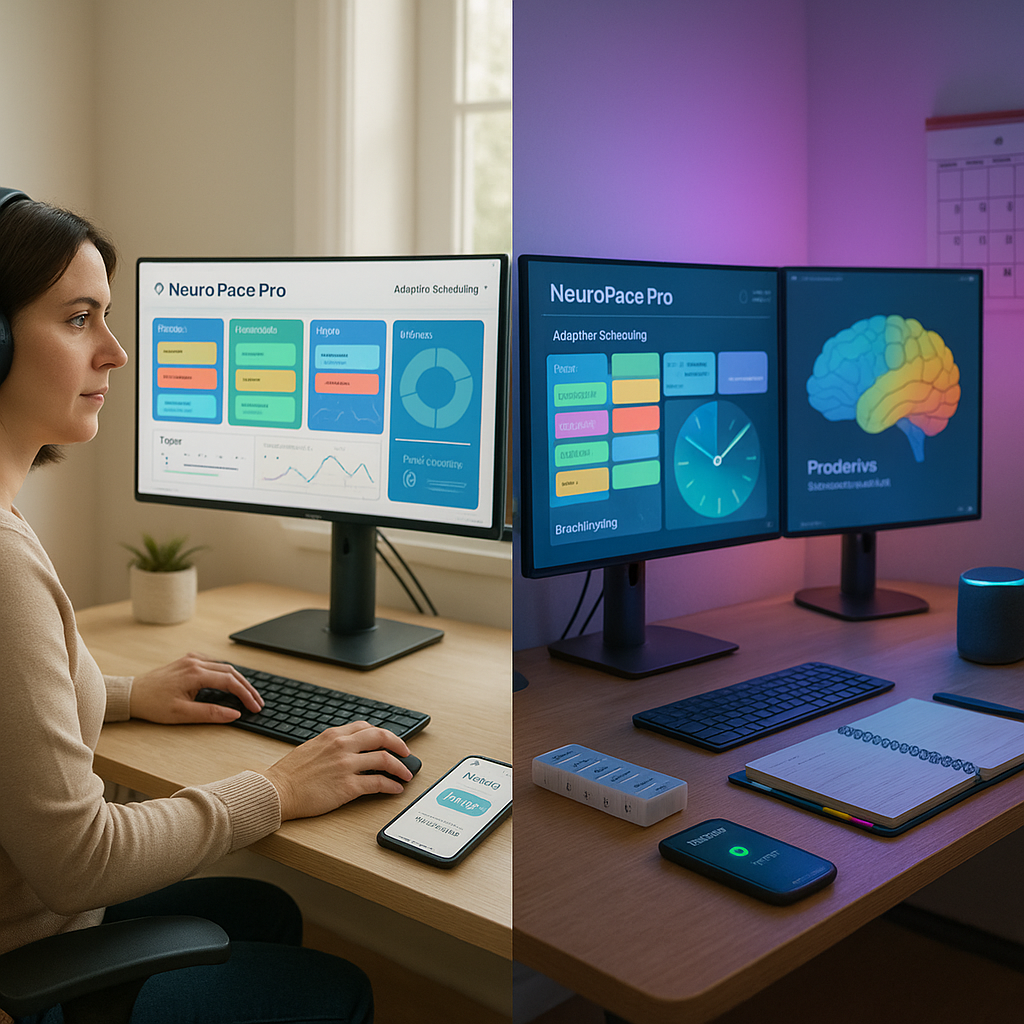Key Takeaways
- ADHD acceptance drives transformation: The founder rebuilt life and business by embracing ADHD strengths rather than battling weaknesses.
- Remote work magnified ADHD challenges: The loss of in-person structure triggered cycles of burnout, chaos, and stalled projects for many neurodivergent entrepreneurs.
- AI and automation as allies: Personalized tech tools helped channel hyperfocus and creativity into clear systems that are sustainable.
- Business rebuilt on new systems: Efficiency and self-knowledge provided a foundation for long-term success after the pandemic.
- ADHDink’s mission expands: The company now offers practical tools and consulting to help other ADHD professionals succeed in remote and freelance roles.
- Looking ahead: ADHDink is developing new content, AI-driven tools, and community consulting to support more neurodivergent creators and founders.
Introduction
When the COVID-19 pandemic upended daily routines, many neurodivergent entrepreneurs (including ADHDink’s founder) struggled with remote work and experienced burnout. By choosing to embrace unique neurodivergent traits and adopting AI-powered systems, the founder rebuilt a thriving business. ADHDink now aims to help others turn neurodivergence into a sustainable advantage.
How Remote Work Exposed ADHD Challenges
As the pandemic forced a shift to remote work, many ADHD entrepreneurs saw their established workplace systems falter. Sarah Chen, founder of TechFlow Solutions, reported struggling with tasks that previously felt manageable in an office setting.
The absence of physical transitions between home and work environments introduced new obstacles for focus and time management. James Morton, a software startup founder diagnosed with ADHD in 2019, stated that losing his commute and office routine meant losing vital work boundaries.
This flexible work structure brought both hidden strengths and unexpected difficulties. Many entrepreneurs encountered more trouble initiating tasks and managing time. At the same time, the shift opened the door to designing personalized workflows that played to individual strengths.
Discovering Hidden Advantages
The need to customize workspaces led many ADHD entrepreneurs to recognize their unique operational preferences. Maya Patel, a tech entrepreneur, found her hyperfocus states became more productive when she could adapt her workspace to her sensory needs.
Controlling environmental factors became especially valuable for neurodivergent business owners. Alex Thompson, founder of a digital marketing agency, shared that organizing his day around natural energy peaks was more effective than maintaining a traditional 9-to-5 schedule.
The flexibility of remote work encouraged experimentation with scheduling and work techniques. Many found success through body doubling on video calls and leveraging automation tools to support consistency.
Creating ADHD-Friendly Systems
Successful remote entrepreneurs have developed innovative systems that utilize ADHD traits. Rachel Kim, a digital project manager, introduced a “visual chaos board” that transformed traditional project management into an engaging, game-like process.
Automation has played a key role in sustaining routines. Chris Martinez explained how automating emails and invoice tracking helped his e-commerce business thrive after implementing AI-powered workflows.
A growing selection of digital tools designed for neurodivergent users has further enabled this shift. Calendar apps addressing time blindness and project management platforms with dopamine-friendly interfaces are now essentials in many entrepreneurs’ toolkits.
Building Sustainable Success
The experience of remote work has led many ADHD entrepreneurs to move away from conventional productivity models. Business coach Lisa Wong described helping clients adopt “energy-based scheduling,” aligning tasks with their natural attention rhythms.
This movement toward authenticity has supported better business outcomes and personal well-being. Dan Foster stated his consulting firm doubled revenue after he embraced flexible work methods and stopped fighting against his ADHD.
Community support also plays a critical role. Virtual co-working groups and networks for neurodivergent entrepreneurs provide valuable spaces to share strategies and celebrate nontraditional approaches to business.
Conclusion
Remote work has prompted ADHD entrepreneurs to redesign both the way and the environment in which they thrive, favoring flexible, brain-friendly systems over rigid norms. This shift has brought measurable improvements in business results and well-being. What to watch: New digital tools and evolving community support networks are poised to influence the next phase of neurodivergent entrepreneurship.





Leave a Reply